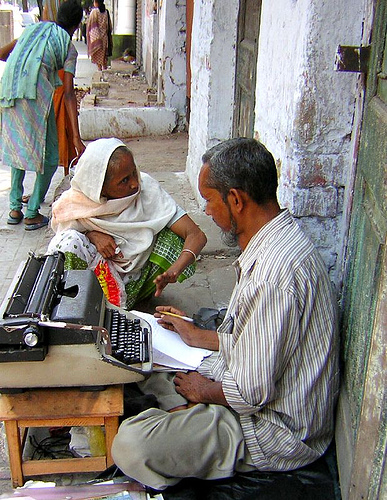Copyright Clearance
| [▲]OER Handbook for educators | |
|---|---|
| License | Copyright Clearance | License Compatibility | Creative Commons | Adding a Creative Commons License | GFDL | Which License Should I Choose? | Perspectives |
Before licensing your OER, you will need to obtain copyright clearance for any copyrighted materials you intend on using. Some potential resources may be under copyright. Possible copyrighted material might include: parts of textbooks, images out of major magazines, etc. While using these resources in the classroom, you were likely covered by Fair Use laws (see Why OER? in the Introduction for more information). Unfortunately, in order for these materials to be available as OER, copyright clearance must be obtained. Copyright clearance means that you have permission, ideally written, from the copyright holder to use the resource as an OER. For commercially published resources, such as textbooks or magazines, it is unlikely that you'll be able to obtain copyright clearance, because of the publishers' desire to be exclusive copyright holders and receive income generated from royalties. Therefore, you would need to replace the material with something licensed openly (see Find OER).
When requesting copyright clearance, you need to be specific about which materials and how they will be used. You should also indicate that you are contacting them because you believe they are the copyright holder.
The following is a sample copyright clearance letter for an OCW course[1].
If this is a physical letter, include the date and a return address.
Dear _________:
I am in the process of creating an online course: <name of course>. The course is intended to be a part of <name of university>'s Open Educational Resources (OER) initiative. These OER are freely available to everyone, regardless of enrollment status with the university. I would like to include material found at the following URL(s):
<List of applicable URLs>
Additionally, I would like permission to adapt, modify, and build upon material at the URLs listed above in order to customize them for use in our institution. I am flexible about any restrictions regarding modification and commercial use, so feel free to discuss any concerns. Also, please indicate how you would like to be acknowledged.
If the copyright is held by another party, I would appreciate any contact information you have regarding the proper rights holder(s). Otherwise, by consenting to our request you are confirming that you have the right to grant permission.
I would greatly appreciate your permission to use these materials. For more information on our licensing policies, visit <insert URL here>. If you have any questions, feel free to contact me at _______________.
Sincerely,
(name)
After sending out the copyright clearance letters, be prepared to wait. Organizations that are copyright holders will sometimes take a long time to respond to copyright clearance requests. Individuals, with the exception of very prominent ones, will usually respond within a few days (sometimes it can be as short as few minutes by e-mail). Some copyright holders will, unfortunately, not respond. In those situations, it is best to find alternate resources. Do not take a lack of response as copyright clearance.
Notes
- Jump up ↑ The letter may be adapted to individual circumstances as needs dictate. However, it is a sample letter and not necessarily legally binding.
